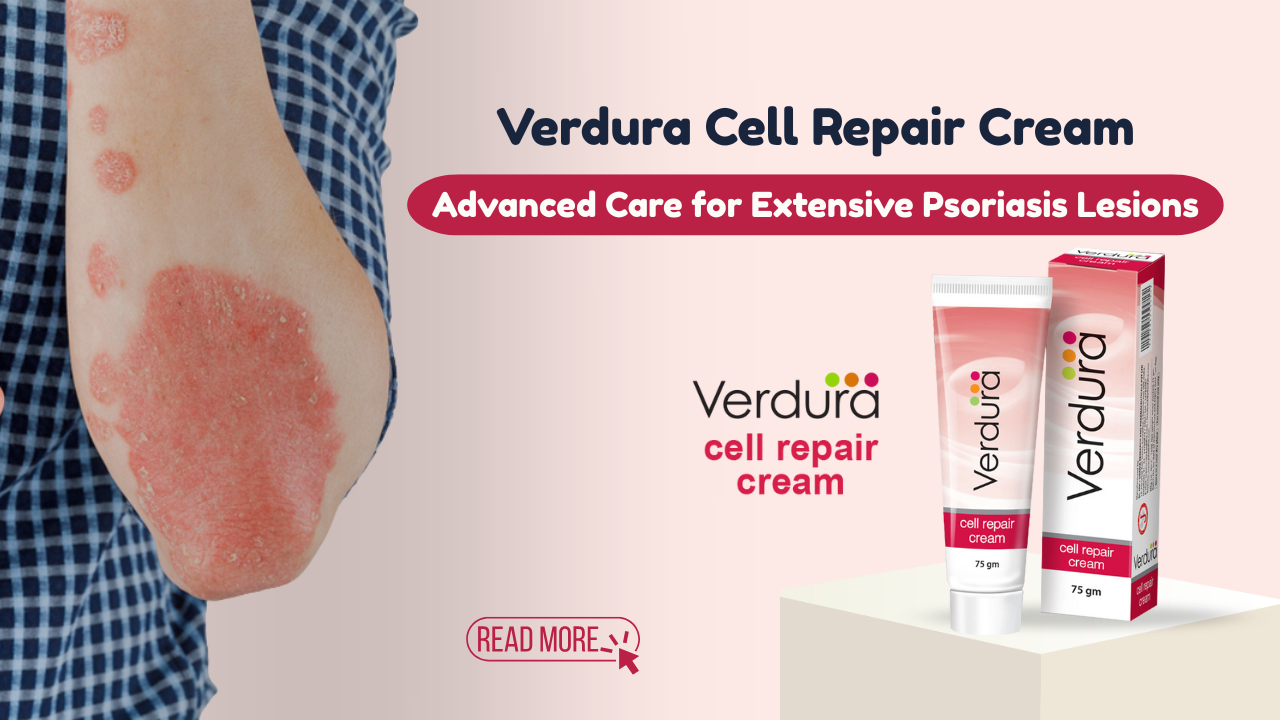For those living with psoriasis, the condition inflicts a heavy burden of physical suffering and emotional distress. Psoriasis is a lifelong condition that typically goes through cycles. In people with psoriasis, the immune system mistakenly attacks healthy skin cells. This causes the skin cell life cycle to accelerate from the normal 30 days to just three to four days. It commonly appears on the elbows, knees, scalp and lower back. The symptoms like itching, scaling and visible plaques can take a significant toll on one's emotional well-being and quality of life.
What Exactly is Psoriasis?
Psoriasis is a chronic, non-contagious autoimmune disease that causes the rapid overproduction of skin cells, resulting in thick scaly and itchy patches on the skin called plaques. Psoriasis usually follows a cyclical pattern with periods of flare-ups alternating with times of remission and improvement.
Types of psoriasis
1. Plaque psoriasis
Plaque psoriasis is the most common form of psoriasis. About 80 - 90% of people living with psoriasis experience plaque psoriasis. Psoriasis plaques appear as raised, inflamed and scaly patches of skin that may also be itchy and painful.
2. Inverse psoriasis
Inverse psoriasis appears on skin as lesions of purple-ish, brown or darker than the surrounding skin in body folds such as underarms, underbreasts, genital area etc.
3. Guttate psoriasis
Guttate psoriasis appears as many small, round and scaly red spots. The sores are covered by a fine scale and are not as thick as plaques. Guttate psoriasis on skin of color can be challenging to diagnose since lesions may not appear red or scaly.
4. Pustular psoriasis
Pustular psoriasis is a rare type of psoriasis affecting about 3% of people living with psoriasis. Symptoms of pustular psoriasis include sterile pustules (white or yellow, pus-filled, painful bumps) that may be surrounded by inflamed or reddened/discolored skin. The pus in pustules is caused by inflammation.
5. Erythrodermic psoriasis
Erythrodermic psoriasis is a rare and severe type of psoriasis. Erythrodermic psoriasis disrupts body's normal temperature and fluid balance. This may lead to shivering episodes and edema (swelling from fluid retention) in parts of the body.
Common triggers for flare-ups include:
• Stress
• Skin injuries (cuts, scrapes or sunburns)
• Certain medications (like beta-blockers or lithium)
• Infections (such as strep throat)
• Cold, dry weather
• Alcohol and smoking

Psoriatic skin management
People with psoriasis have extremely dry, inflamed and sensitive skin which needs constant moisture and protection. A healthy skincare routine plays a vital role in:
- Maintaining the skin barrier: Psoriasis compromises your skin's natural protective barrier. A powerful moisturizer helps repair this barrier, locking in moisture and keeping irritants out.
- Reducing scaling and redness: Well-hydrated skin is less itchy and flaky which can help prevent the itch-scratch cycle that worsens plaque
- Soothing itching and irritation: Hydrated skin looks and feels smoother, which can help improve the overall appearance of psoriatic plaques and boost confidence.
- Preventing cracks and infections
One of the recommendations from dermatologists for managing psoriasis is to keep the skin intensely moisturized.
Introducing a supportive care: Verdura Cell Repair Cream

When managing extreme dry skin conditions like psoriasis choice matters more.
Verdura Cell Repair Cream is specially formulated to meet the demanding needs of psoriasis-prone skin.
It has a unique formulation with Avocado & Almond Oil works to help manage your symptoms:
- Deep & Long-Lasting Hydration: Provides intense moisture that penetrates deeply, helping to combat the severe dryness associated with psoriasis. This directly works to maintain soft, smooth and healthy skin.
- Promotes Healthy Skin Cell Turnover: Regular use supports the skin's natural renewal process which is crucial for calming the accelerated cell cycle seen in psoriasis.
- Calms Inflamed Skin: The nourishing blend helps to reduce itching, scaling, redness and inflammation providing good relief.
- Strengthens Your Natural Defense: By strengthening the skin’s natural protective barrier, the cream helps your skin better retain moisture and protect itself from external triggers.
- Improves Skin’s Look and Feel: With consistent use, can expect an improvement in skin texture and appearance, making plaques less prominent and your skin more comfortable.
How to use:
- Apply Verdura Cell Repair Cream over required areas twice a day (or) As directed by the physician.
- Verdura mela pro cream is recommended as a pre-treatment product to quickly relieve dry skin symptoms.
Lifestyle changes for managing psoriasis
- Eat a healthy, balanced diet containing fruits & vegetables, fish, lean protein, legumes, nuts & seeds, olive oil and whole grains etc.
- Use lukewarm water for bathing. Use mild soap like psorolin derma skincare soap.
- Daily try to get some moderate sunlight.
- Reduce stress, go for stress relieving exercises.
- Quit smoking and alcohol.
Conclusion
Psoriasis is a lifelong journey, but it can be managed effectively. With the right combination of medical treatments and supportive skincare solutions like Verdura Cell Repair Cream, symptoms can be reduced, the skin can be soothed, and comfort and confidence can be restored.
To Know more details visit our website👉: www.verduracare.com





